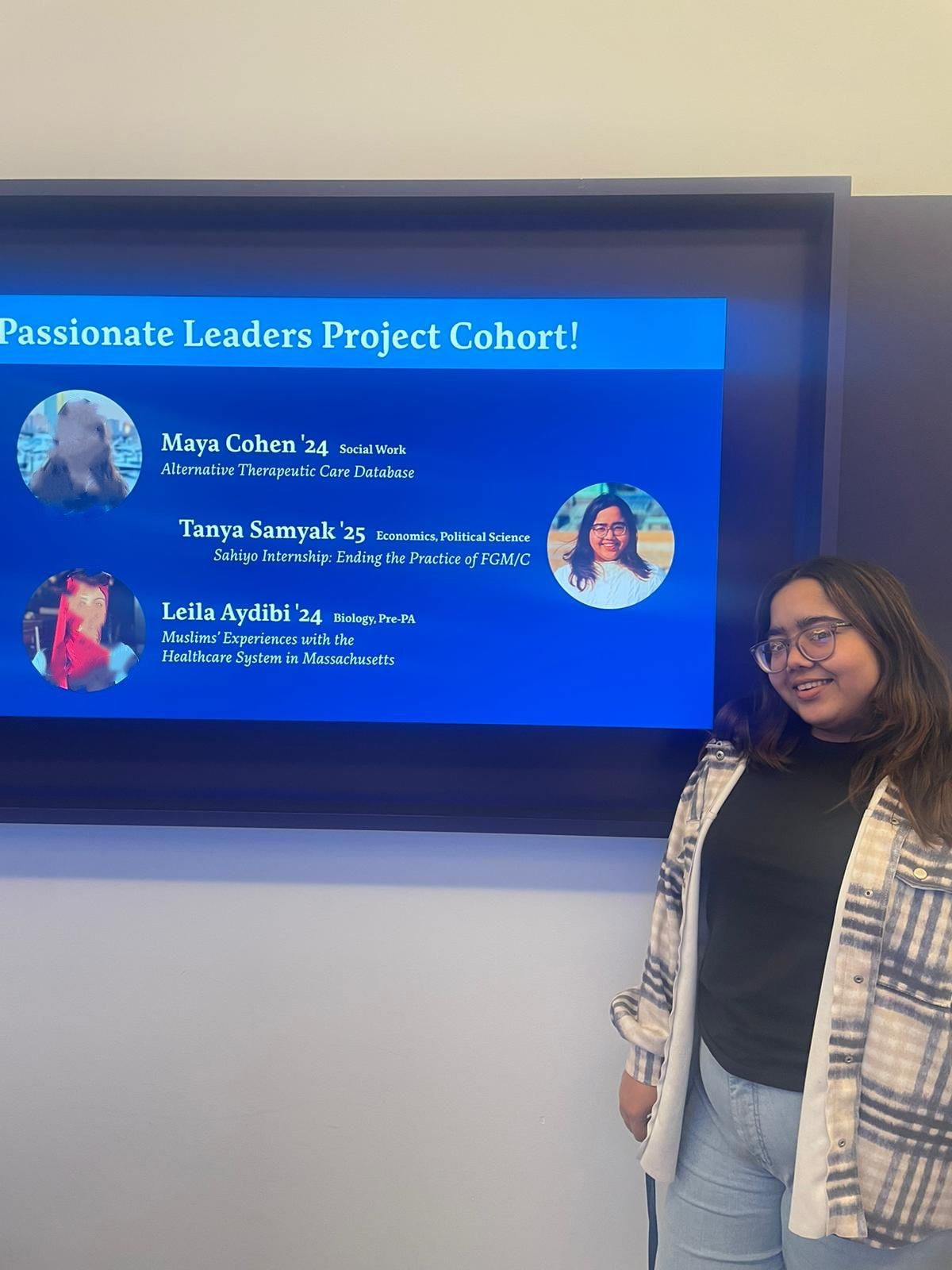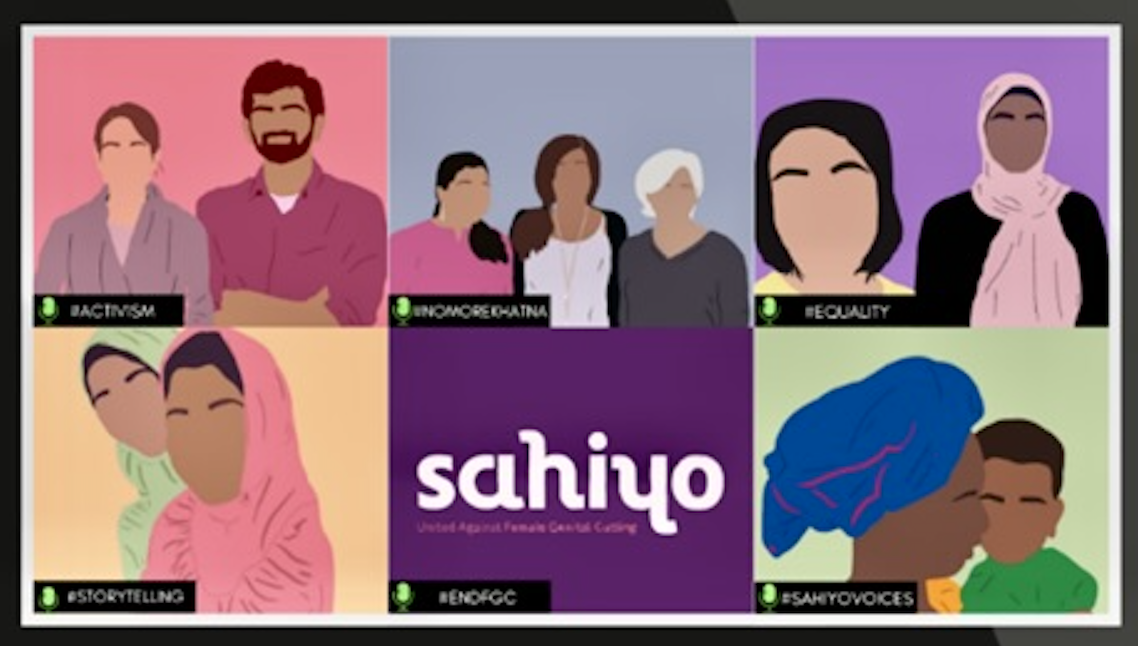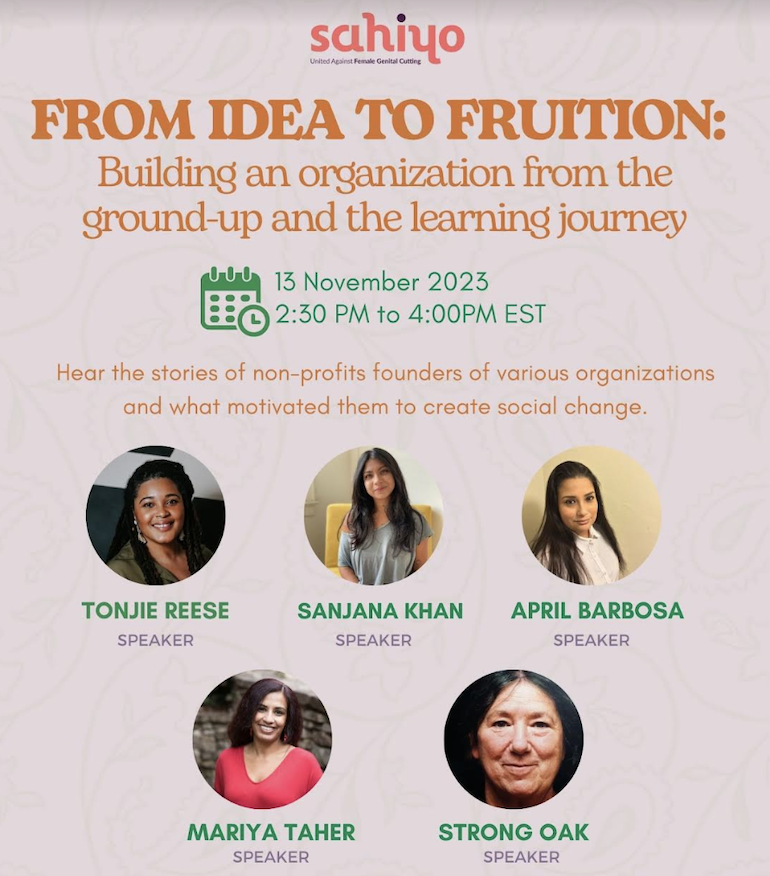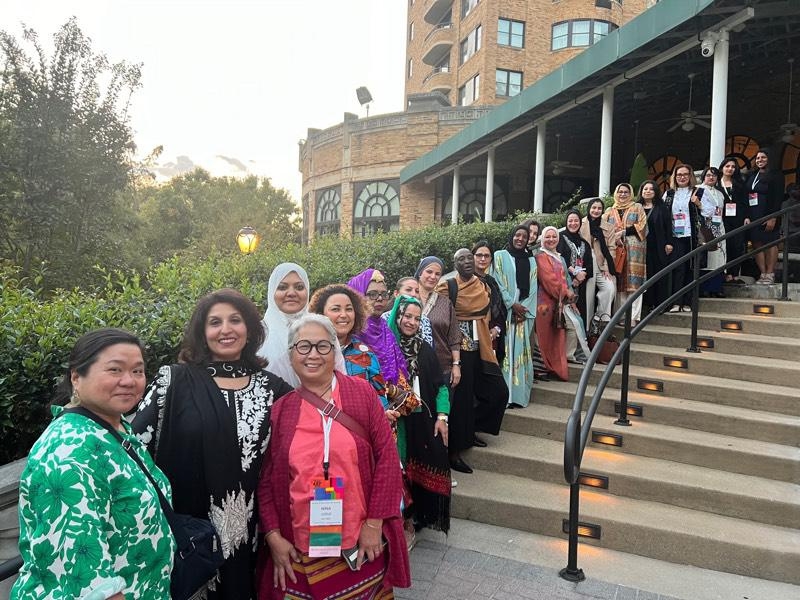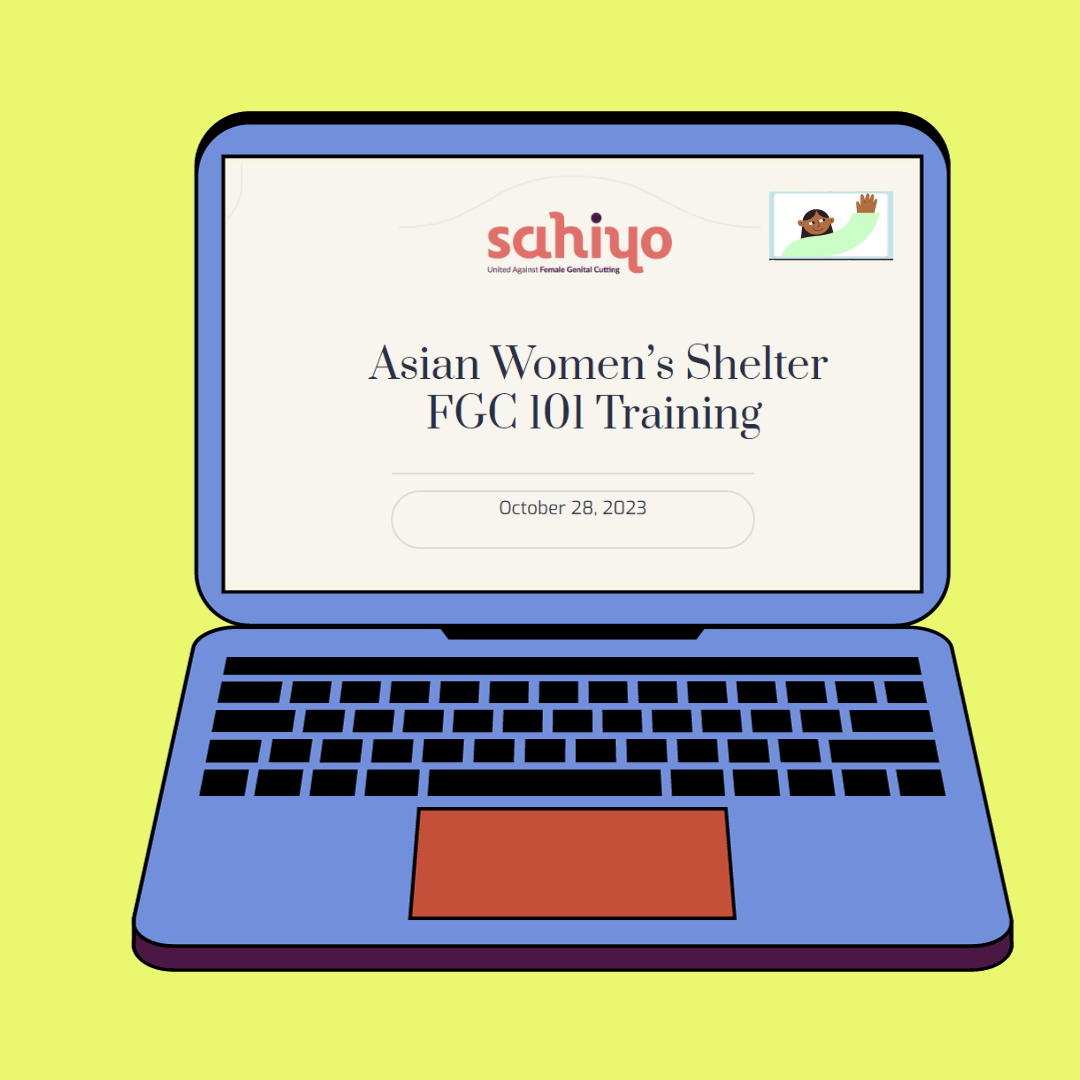My name is Tanya Samyak (she/her) and I am majoring in Political Science and Economics at Simmons University. In September 2023, I began my role as a Events and Program Intern at Sahiyo U.S. a nonprofit organization based in Mumbai, India and Cambridge, Massachussetts, USA, whose mission is to empower Asian and other communities to end female genital mutilation/cutting (FGM/C) and to create positive social change through dialogue, education, and community collaboration.
As an Events and Program Intern, I look forward to supporting various Sahiyo programs and initiatives such as developing educational and informative blog posts and reflection pieces connected to the topic of female genital cutting. I am also very excited to coordinate and produce a webinar that will facilitate discussion on the topic of community engagement with regards to preventing the practice of FGC.
Alongside gaining this internship, I applied for and was accepted into the Simmons’ Passionate Leaders Project (PLP), a program administered by the university’s Undergraduate Research Fellowship. The PLP program is meant to support and provide funding for diverse opportunities, extending beyond the boundaries of the traditional classroom setting, such as global experiences, research, internships, service projects, and other creative endeavors.
I was thrilled to receive news of my acceptance into this program in late October. Currently, the stipend provided by PLP is being utilized to compensate for my time at Sahiyo as an intern.
Lastly, I am grateful to my internship advisor Meg Sinnott, and the rest of the Sahiyo staff whom I am working with: Aries Nuno, Samman Masud, and Mariya Taher for their guidance throughout this internship process.

